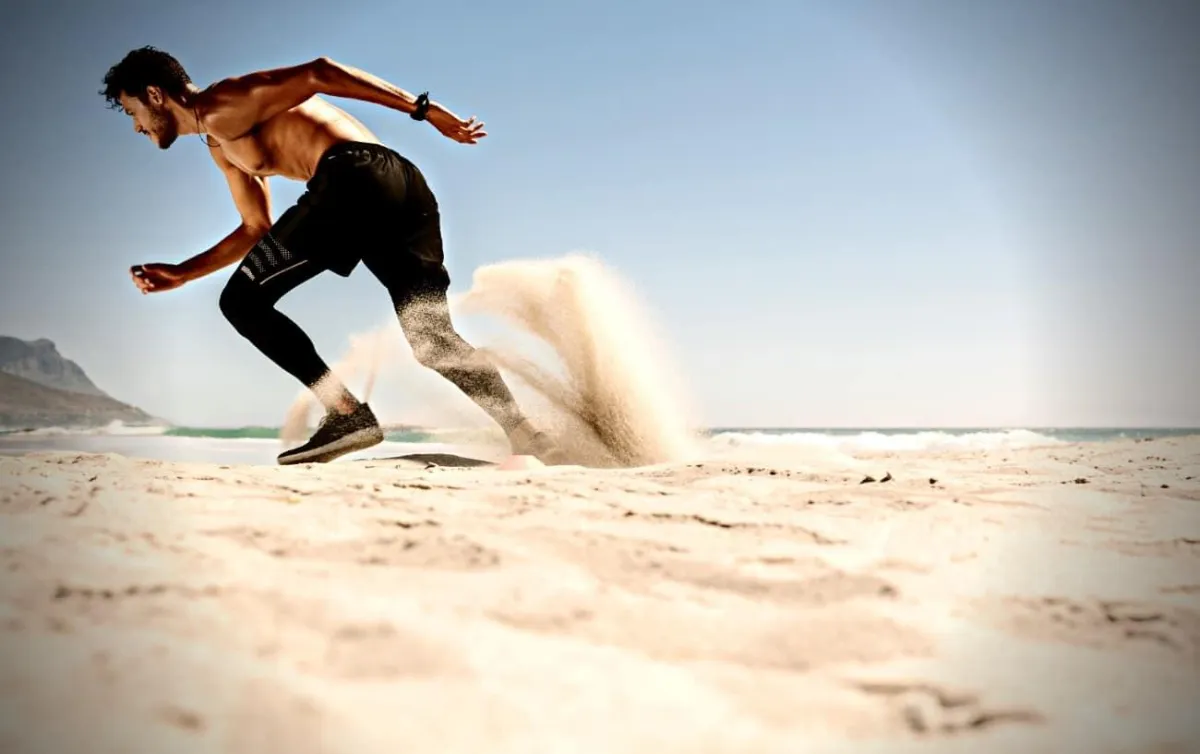
The Truth About Sand Training: Why It Doesn’t Make You Faster
🏖️ The Truth About Sand Training: Why It Doesn’t Make You Faster - Lewis Physical Therapy & Sports Rehabilitation
What You’ll Learn in This Blog
Why sand training reduces the elastic qualities that drive sprint speed
How improper surfaces affect acceleration mechanics
Better ways to build true speed, power, and durability before your season
🎥 Watch the Full Video on YouTube
Don’t miss the full breakdown on how sand training actually limits performance — and what to do instead.
▶️ Watch Now on YouTube:
The Problem with Sand Training
Every offseason, you’ll see highlight reels of athletes sprinting and cutting on the beach — and it looks impressive. The narrative is that the sand “adds resistance” and makes athletes “work harder.” But in reality, sand training is one of the worst ways to build speed and power for field-sport athletes.
Sand removes the elastic stretch-shortening cycle your foot, Achilles tendon, and hamstrings depend on during sprinting. Because the ground gives way under pressure, your body can’t store and release elastic energy efficiently. This not only kills speed development but also increases your risk of soft-tissue injury when you return to firm surfaces.
Why Firm Surfaces Build True Speed
Speed and explosiveness are built on elastic strength — the ability of tendons and muscles to rapidly load and unload energy. To train this, you need a firm, non-compliant surface that allows for fast ground contact and recoil.
Instead of sand, focus on power-speed drills like:
Marches and skips
A and B drills
Pogos and ankling patterns
These movements retrain your lower leg complex for real sprint mechanics and make a much safer transition to high-speed running.
The Simpler, Smarter Progression
For offseason or return-to-play athletes, a better plan is:
Weeks 1–3: Power-speed and technical drills
Weeks 4–6: Gradual sprint exposure on turf or track
Weeks 7–10: Full sprint mechanics and resisted sprint work
Remember — simple works best. The goal isn’t to “feel the burn,” it’s to train your body to move efficiently, elastically, and powerfully.
📅 Ready to Throw Pain-Free?
Struggling with throwing pain? Don’t let it hold you back.
👉 Text “Arm Pain” to 732-724-1381 to schedule your discovery call and get your FREE copy of The Arm Pain Blueprint.
💪 Worried that Poor Throwing Mechanics Are Causing Your Arm Pain?
Struggling with your mechanics? Learn the common throwing mechanics mistakes I see and how to correct them.
👉 Text “Blueprint” to 732-724-1381 to schedule your discovery call and get your FREE copy of The Pitcher’s Mechanical Blueprint.
🎙 Listen to This Episode on The Lewis Physical Therapy & Sports Rehab Podcast
Catch the full breakdown of why sand training doesn’t transfer to true speed or performance.
🎧 Listen on Spotify: https://open.spotify.com/show/4A6iBs0CzkAwSu9rUVPfGX?si=lrea2AaWQSy5USIT90KXhQ
⚡ Looking to get stronger, faster & more explosive?
Build real speed, power, and strength with our Triple Threat Sprint System.
👉 https://www.lewisptsr.com/home-page-673984-4202